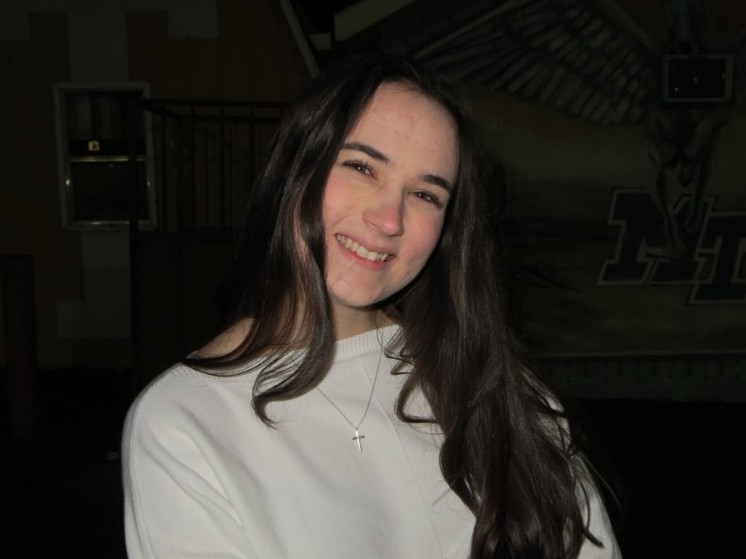
Learn more about MTEP Research Hub member Sarah Hartman, doctoral student and research/teaching assistant at Middle Tennessee State University.
How long have you been at your institution?
SH: I began my doctorate at MTSU in fall of 2024, so I have been at MTSU for around a year now!
Who is your favorite mathematician or educator character in a book, movie or TV show?
SH: My favorite educator is Miss Honey in the movie Matilda. As an educator, Miss Honey was kind and caring towards Matilda, and recognized the giftedness she had. Miss Honey played a vital role in Matilda’s educational development and the reason I chose her is because of the individualized instruction she was able to provide to Matilda and each of her students. Gifted education is close to my heart, and she advocated for Matilda. I work to provide this type of instruction every day in my own classroom!
What inspired you to get involved in mathematics education research?
SH: My love for math education research boils down to my love for teaching. I loved thinking about my own instruction and how I could be better. One of my mentors in my early undergraduate career told me, "If you love something and want to be in academia, you might as well see if you can research it!" I had already worked on a variety of research projects and thought to myself, well… surely there is research on teaching! I got involved in some projects and found that I could combine my love for teaching with my love for research, which got me involved in mathematics education research.
What skills or knowledge are you learning through working with the partnership that you find most useful in your career?
SH: I have gotten an excellent introduction to research skills used in a large grant project. I have worked on interviewing, coding, and synthesizing a lot of data, which has prepared me to collect my own data and conduct my own research! Also, there is a lot of time management involved in working on this grant while being a full time graduate student. Of all the skills I mentioned, time management is what I have learned most about.
What advice would you give to students who want to pursue careers in mathematics teaching, teacher preparation, and/or education research?
SH: I would encourage future education researchers and teacher educators to be a sponge. Read as much as you can, and write as much as you can, even if it is just for your own record! Being knowledgeable about many areas is a great way to learn to critically evaluate both your own work and the work you eventually will research as a career. I also encourage anyone who wants to be a math teacher to take time to be a designer. Sometimes we can get bogged down with the "to-dos" of teaching that we forget that teaching is a creative, fun endeavor! Just try something out, and do your best! As long as it serves your students, all is well. Sometimes this is difficult, but you get better at it the more you do it!
How is your involvement in MTEP work worthwhile to your graduate school/professional journey?
SH: MTEP provides me a way to practice many of the skills I will use as a researcher. My goal for my career is to be in a tenure-track research and teaching position at a university, so the skills I learn, such as qualitative coding, synthesis of data, and time management are all needed for my future career. MTEP has also provided me with exposure to many different literature areas and helped me understand how teacher preparation programs work!
What skill do you think is most valuable for students considering a career in mathematics teaching, teacher preparation, and/or education research?
SH: I think the skill that is most valuable is being curious. I think being curious is inherently natural, but knowing how to be curious in a disciplined way is a great skill to have in both teaching and research areas. In teaching, this may look like digging into your students' thinking and following it in instruction, but knowing when to move on. In research, this looks like sometimes going down literature rabbit holes, then focusing on a specific component of that research. Both are rooted in curiosity!
Tell us about the most rewarding mathematics education experience that you have had.
SH: While I was teaching a content course for future elementary teachers last year, I implemented an activity of my own design that was pretty different from the curriculum I was using. I designed the series of tasks to help my students better understand partitive and measurement division, and to my surprise, it worked very well. The task had students informally explore their own thinking about division, and I scaffolded the task to elicit both types of division, then as a class used their thinking to form definitions for the types of division. Then, towards the end I showed them the actual definitions for partitive and measurement division. I distinctly recall my students realizing that their invented strategies for division were validated through the content of the course, and expressing surprise that they could actually do the math. I loved helping them see that part of themselves to help them develop their math identity. I was so happy to see that division was no longer a barrier to my students' mathematical understanding, and the rest of the unit went significantly smoother. Plus, I used a lot of the skills I have learned about through some other mathematics education research projects to help me! This is a practical example of how much of my research impacts my teaching, and it was super rewarding!